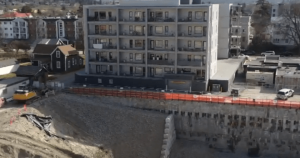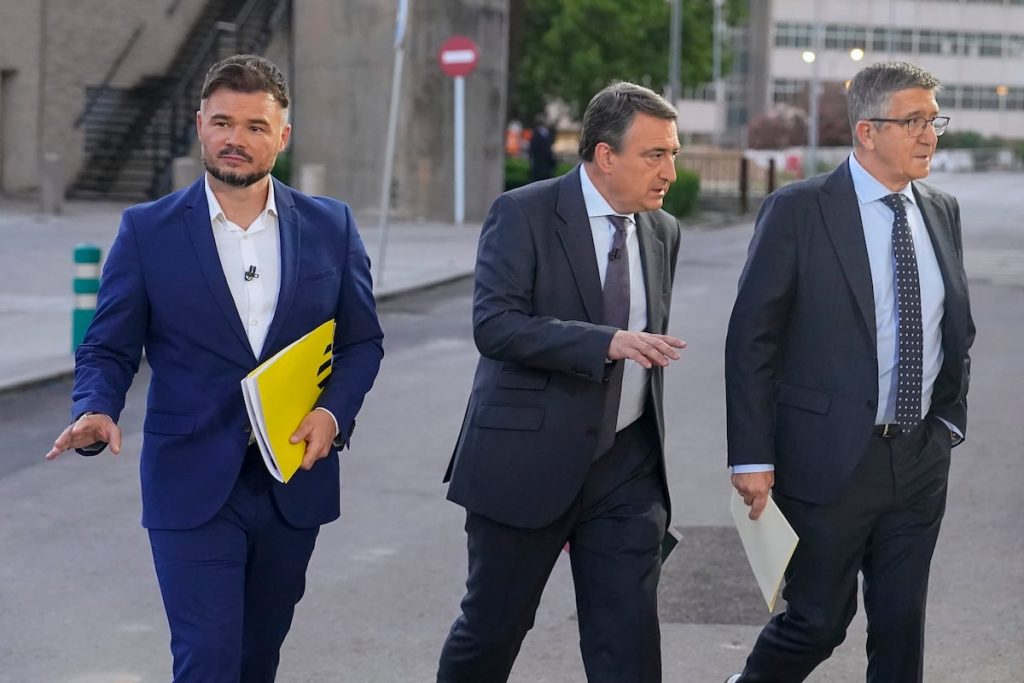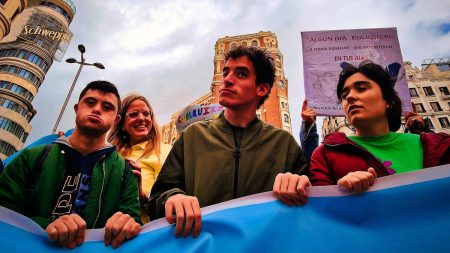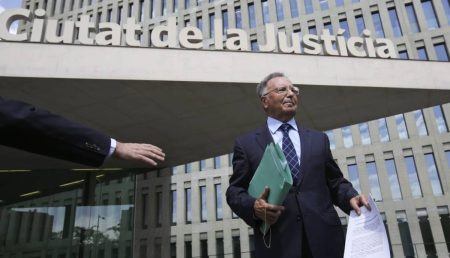The goal unites them all: to save the legislature and stand up to the “harassment from the right”. This is the entire PSOE, including the dissident barons; their coalition partner Sumar, and parliamentary allies, among whom only Junts has hesitated to express support for Pedro Sánchez after the announcement that he is considering resigning. Both the entire government and former president José Luis Rodríguez Zapatero have mobilized within the socialist ranks to defend Sánchez. Support is also unequivocal from Sumar’s leader, Yolanda Díaz, as well as top leaders of ERC, PNV, EH Bildu, and BNG who have denounced the political and judicial attacks on the president. Nobody wants new elections after narrowly maintaining the majority last July. If Sánchez were to seek a vote of confidence, all parties except Junts are inclined to support him.
At the last investiture in November, the PSOE candidate gathered 179 favorable votes (including Junts), with 171 against, indicating a complex and highly tense legislature. The current situation offers several possibilities: Sánchez could continue as is, seek a vote of confidence, or even resign, leaving another interim president until a new investiture. New elections could not be called until the end of May, a year after the last ones were held. A vote of confidence, a rarely-used constitutional tool, requires the support of a simple majority of Congress. Sánchez could potentially win with the support of ERC, Basque, and Galician nationalists, and a simple abstention from Junts.
In defense of the current parliamentary majority, Sumar’s spokesperson in Congress, Íñigo Errejón, urged the construction of a broad democratic bloc against the far right and “external powers” influencing Spanish life. Yolanda Díaz echoed this sentiment, emphasizing the need to defend the progressive bloc and the legitimacy of the coalition government. The president of the PNV, Andoni Ortuzar, suggested a vote of confidence as a possible solution, urging Sánchez to make a decision promptly. In a similar vein, Arnaldo Otegi of EH Bildu vowed to block any attempt by the right to seize power.
Gabriel Rufián of ERC made it clear that his party would not allow Sánchez to be ousted by what he sees as a campaign of political, media, and judicial harassment from the right and far-right. While ERC is not in favor of a vote of confidence, the President of the Generalitat, Pere Aragonès, suggested that Sánchez’s resignation could be for reasons other than strictly political. Puigdemont challenged Sánchez to present the vote of confidence without revealing Junts’ position. On the other hand, the leader of Podemos, Ione Belarra, urged Sánchez to continue, emphasizing the need to protect the progressive bloc. The BNG’s Néstor Rego also called for the continuation of the government and the legislature to fulfill commitments made to Galicia.
Coalición Canaria will wait for Sánchez’s announcement on Monday to take a position, but their spokesperson in Congress expressed discomfort with the current confrontational climate and the intrusion of personal life into politics, affecting leaders of various parties. The coming days will determine the fate of the current government and whether Pedro Sánchez will continue as the President, facing challenges from within his coalition and external pressures from the opposition. The outcome of this political crisis will shape the course of Spanish politics in the months to come.
















